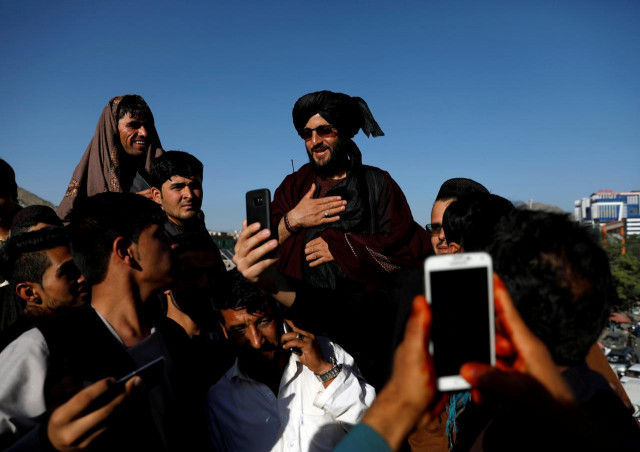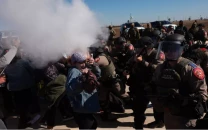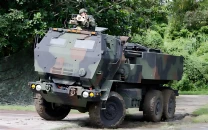Taliban seek venue change for peace talks with US
Taliban reject offer for direct talks with Kabul government

Taliban rejects offer for direct talks with Kabul government. PHOTO: REUTERS/FILE
The upcoming negotiations, the fourth in a series aimed at ending the 17-year war in Afghanistan, are scheduled between the leaders of the Taliban and US special envoy Zalmay Khalilzad to discuss the withdrawal of foreign forces and a possible ceasefire in 2019.
Leaders of the group have rejected the Kabul government’s offer for direct talks, despite growing international pressure in favour of the Western-backed Afghan government having a seat at the table.
“We were supposed to meet US officials in Riyadh next week and continue our peace process that remained incomplete in Abu Dhabi last month,” a senior Taliban member based in Afghanistan told Reuters on condition of anonymity.
Russia reaches out to Afghan leaders for Taliban talks, angering Kabul
“The problem is that leaders of Saudi Arabia and the United Arab Emirates (UAE) wanted us to definitely meet the Afghan government delegation, which we cannot afford to do now, and we have cancelled the meeting in Saudi Arabia,” he said.
The Taliban want to change the venue for the talks to Qatar, he said, the political headquarters of the group that is fighting to restore strict Islamic law in Afghanistan and the site for earlier talks.
Taliban spokesperson Zabihullah Mujahid confirmed the group has decided to cancel the meeting in Saudi Arabia, but did not provide information about a new meeting venue.
The United States embassy in Afghanistan did not immediately respond to a request for comment.
Another senior Taliban leader said the group had explained to Saudi Arabia that it was not possible for the Taliban to meet the Afghan government at this stage.
“Everyone is aware of the fact that the Afghan government wanted the US and its allies not to leave Afghanistan and we have paid a heavy price to expel all foreign forces from our country,” he said.
“Why should we talk to the Afghan government?”
Taliban dismiss Afghanistan's peace talks offer
The Taliban regard the United States as its main adversary in the Afghan war and views direct talks with Washington as a legitimate effort to seek the withdrawal of foreign troops before engaging with the Afghan government.
The war in Afghanistan is America’s longest overseas military intervention. It has cost Washington nearly a trillion dollars and killed tens of thousands of people.
Diplomatic efforts to resolve the conflict have intensified since Taliban representatives began meeting with Khalilzad, an Afghan-born, US diplomat last year. Officials from the warring sides have met at least three times, but fighting has not subsided.



















COMMENTS
Comments are moderated and generally will be posted if they are on-topic and not abusive.
For more information, please see our Comments FAQ